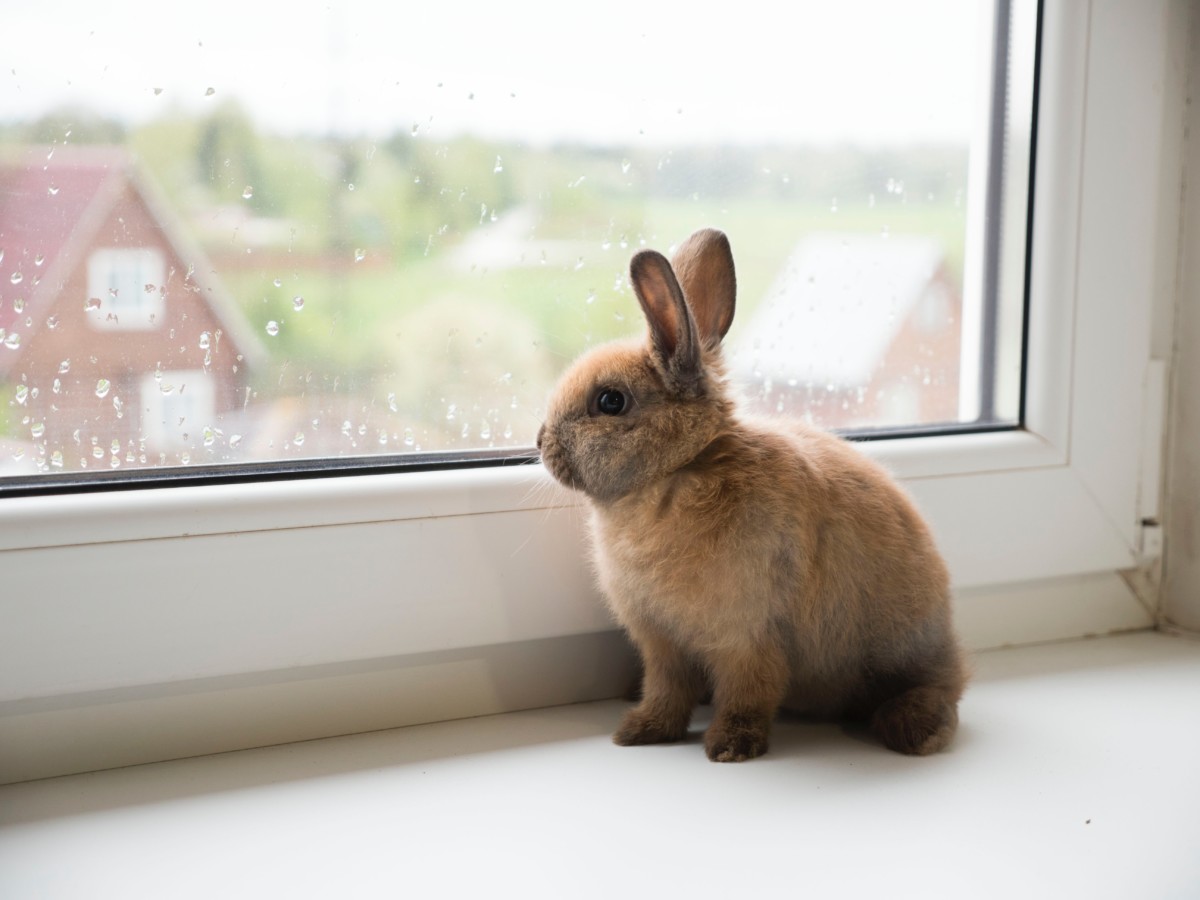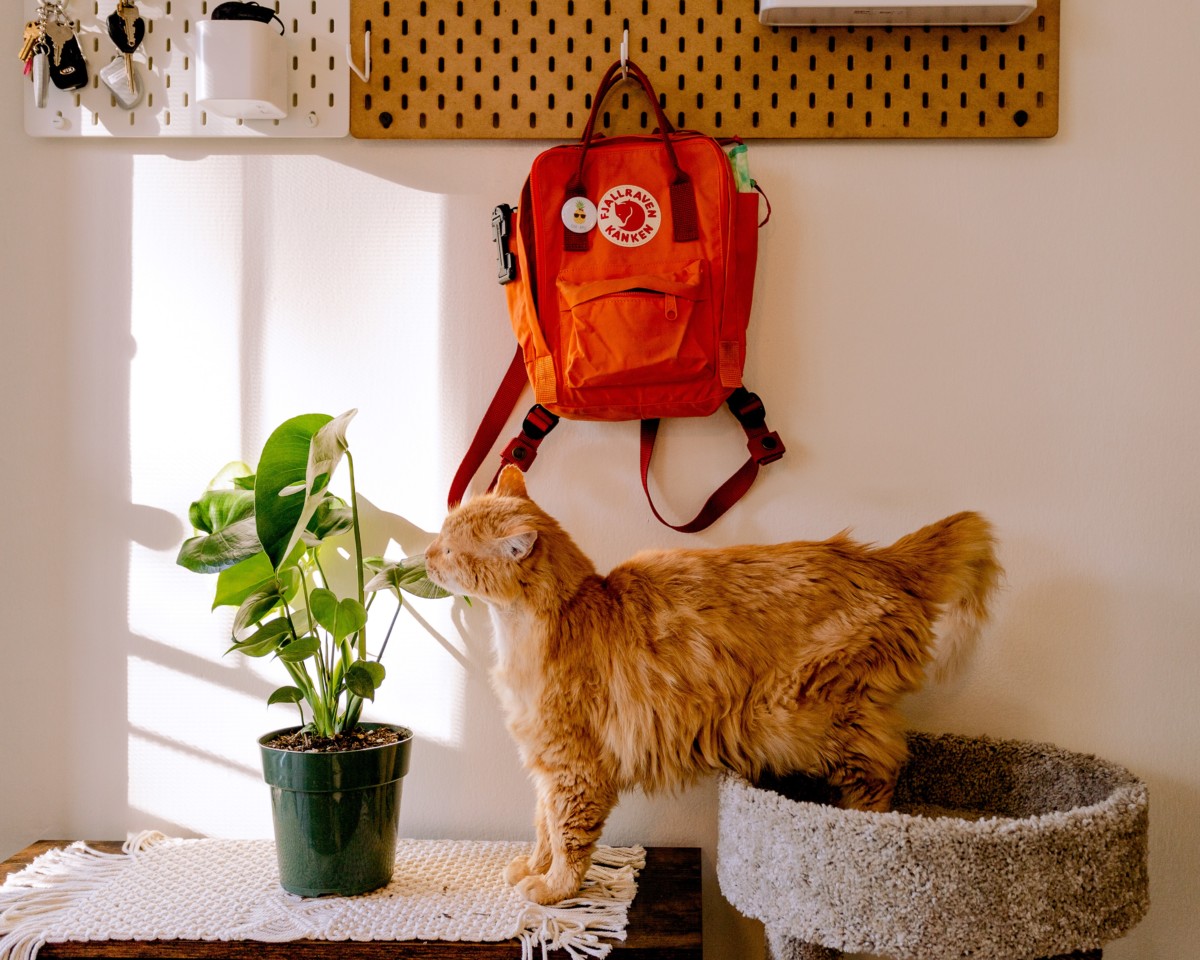Pets are great companions. They provide health benefits like socialization, intellectual stimulation, and companionship while bringing joy to people’s lives. Unfortunately, renting with pets can be difficult; property managers generally view animals as risks and dissuade people from having them through higher rent, deposits, and other restrictions. Thankfully, most rental properties allow pets in limited forms.
Property managers usually permit small pets, like fish or turtles, but are more strict with larger animals, like cats and dogs. So whether you rent a home in Boulder, CO, or Philadelphia, PA, read on to learn what you need to know about renting with pets.

Renting with pets: pet policies
Most rentals have provisions called pet policies. These are rules included in a lease that protect the landlord and tenant by clearly stating expectations around pet ownership. Policies can vary widely, ranging from no-pet policies to having no policy at all. Before you sign a rental agreement, carefully review the pet policy and also ensure the policy is included in the lease so that you have it in writing.
No-pet policies
Some rentals don’t want pets at all. This provision commonly excludes all animals of any kind. Do not try to sneak a pet in, as breaking your lease may result in eviction or fines. An exception to this rule is if your pets are medically required, such as emotional support animals or service animals.
Types of pets allowed
Pet policies vary widely. Some policies may exclude a single species, such as cats, while others might exclude everything but cats. Read the provisions carefully and ask plenty of questions to ensure your pet is allowed.
Breed restrictions
Many rentals are picky when it comes to animal breeds, most commonly among dogs. While not every rental has dog breed restrictions, those that do generally restrict larger and louder mixed breeds and mutts. These breeds are usually part of the “bully” category and include Pit Bulls, Rottweilers, Huskies, Mastiffs, German Shepherds, and Dobermans. Apartment buildings are most likely to restrict these breeds.
If you own a restricted dog breed, it’s possible to appeal the restriction and ask for flexibility. If your property manager is steadfast, try negotiating by paying a higher security deposit or a higher pet rent. Bring your dog for a pet interview to prove they are fit to rent, and ask your friends for pet references.
Number of pets allowed
Most rental properties limit the number of pets you can have. You may be limited to one or two pets or may need permission to bring any at all. Service animals and emotional support animals fall outside of this restriction and generally have no limits depending on your area.
Weight requirements
Pet policies commonly include weight maximums – for example, no pets over 100 pounds. These requirements can be sneaky ways of ruling out certain species and breeds without inserting a specific breed restriction. Property managers may also only want smaller animals due to the size of the rental, making renting with pets a more difficult process.
Pet rent and deposit
As if pets aren’t expensive enough, rentals often include pet rent, additional security deposits, and cleaning fees in the lease. Pet rent is an additional monthly cost added to your base rent and is nonrefundable. Pet security deposits are generally refundable but come with strict stipulations. Noise complaints, stains, and damage are all possible reasons your deposit can be voided.
These charges are illegal in some states, so make sure to check with the property manager and do your research before signing a lease. Budget conservatively and ask plenty of questions.

Service animals
Service animals are working animals and are not considered pets, making them exempt from most rental policies. As such, property managers legally can’t prohibit a service animal from living in a rental. They can’t charge a pet deposit or pet rent, and can’t restrict based on size, species, weight, or breed. You are also not required to disclose any information about your disability or the exact service your service animal provides. Be sure to have proper documentation and a support system who can help you in case of disagreement.
Emotional support animals
Under the Americans with Disabilities Act (ADA), emotional support animals are not considered service animals because they aren’t trained to perform a specific task. Additionally, a doctor’s note does not make an emotional support animal a service animal. However, they are still usually exempt from many rental requirements.
Rules surrounding emotional support animals are typically state or city-dependent. They always require documentation from a medical professional, though. For example, in Seattle, Washington, support animals are given similar rights as service animals. Keep an eye out for local laws regarding emotional support animals.

Considerations for renting with pets
Pets can be great additions to your home, bringing fun, carefree energy to your life. But they come with their challenges – they require cleaning, care, time, and energy and can negatively affect your rental history if they cause damage. They can also limit your renting options; some rentals don’t allow pets or are restrictive with pet breeds, species, and sizes. For example, most rentals do not allow small animals like rabbits or guinea pigs (unless they are considered service or emotional support animals). Regardless, most rental properties allow pets in some capacity, and are willing to help you bring yours along. When you find a rental, here is what to keep in mind to help your pet adjust to their new home.
Pet health
No matter your pet, taking care of their needs is important. Managing exercise, sickness, and food intake leads to a healthier home. Here are some important points to keep in mind when renting with a pet:
- Exercise: Ensuring your pet gets enough exercise in an apartment can be a challenge – especially if you don’t have a yard or live in a small space. If you have a cat or other small animal, invest in enrichment items like toys and treats. If you have a dog, make time for walks and running around at the park. Keeping your pets active improves their health and leads to a better experience for everyone.
- Food: It’s always important to consider the food you’re feeding your pet. However, if you live in a small rental and there isn’t much room for exercise, food is even more important. Most animal food is nutritionally balanced, but stay away from foods with processed ingredients and added sugar.
- Vaccines: If you adopt a shelter pet or buy a purebred, they will likely have had their necessary vaccinations. However, always take your pet in for a vet appointment at least once a year to ensure they are up to date. Most property managers ask for proof of vaccinations for your pets.
- Tags and chips: Before the unthinkable happens and your pet escapes your rental, put a collar and nametag on your pet to let people know it’s yours. You can also “chip” your pet. This means a tracking microchip is inserted into their shoulder or leg, making them much easier to find if they escape, get lost, or run away.
Cleaning
Pets are messy. In a rental, large messes can increase your risk of losing your security deposit and may require expensive cleaning. Depending on your pet, there are different methods to reduce the risk of messes. Potty train your pet when possible, and purchase cat litter and dog bags monthly. Here are some other popular pet cleaning practices:
- Litter box: This is a necessity for cat owners. Make sure to clean it at least once every two days. You may need to clean the litter box more often, depending on how many pets you have.
- Small animal cage: Used for rabbits, guinea pigs, birds, and other small animals, cages are where your small animal will spend most of its time. Some small animals, like a guinea pig, can’t be potty trained.and must be kept in their cage at all times.
- Outside/grass patch: If you have a dog, be sure to keep track of its time spent outside. Train it to sit by the door if it has to use the bathroom. Nature is where dogs do their business. If outdoor space is limited, consider a small portable grass patch.
- Pet stains: Accidents happen. Younger pets and small animals are at a much greater risk of leaving stains or other marks on furniture or carpet. Strong stain removers are essential if you are renting with pets. Stay on top of stains and act quickly when you see them to ensure they don’t cost you later.
- Pet smell: Pets are smelly. Their smell can permeate and may require expensive cleaning or replacement. Fabric sanitizing spray, odor treatments, and air fresheners can help combat persistent pet smells.
Grooming
In order to reduce the risk of messes or health issues, be proactive and groom your pets. Brushing your pet helps get rid of mats and excess fur and hair. Clipping your pets’ nails keeps their paws and feet healthy. When possible, and if necessary, bathe your pet. Small animals may need extra mat removal and other frequent cleanings as necessary.
Renting with pets: final thoughts
Renting with pets can be a joy. Keep them entertained, active, healthy, and socialized, and they can greatly improve your life. While they cost extra money, require a safe and welcoming environment, and take a lot of work, they can provide many benefits and bring additional happiness to your life.
The post Renting With Pets: What You Need to Know appeared first on Redfin | Real Estate Tips for Home Buying, Selling & More.
